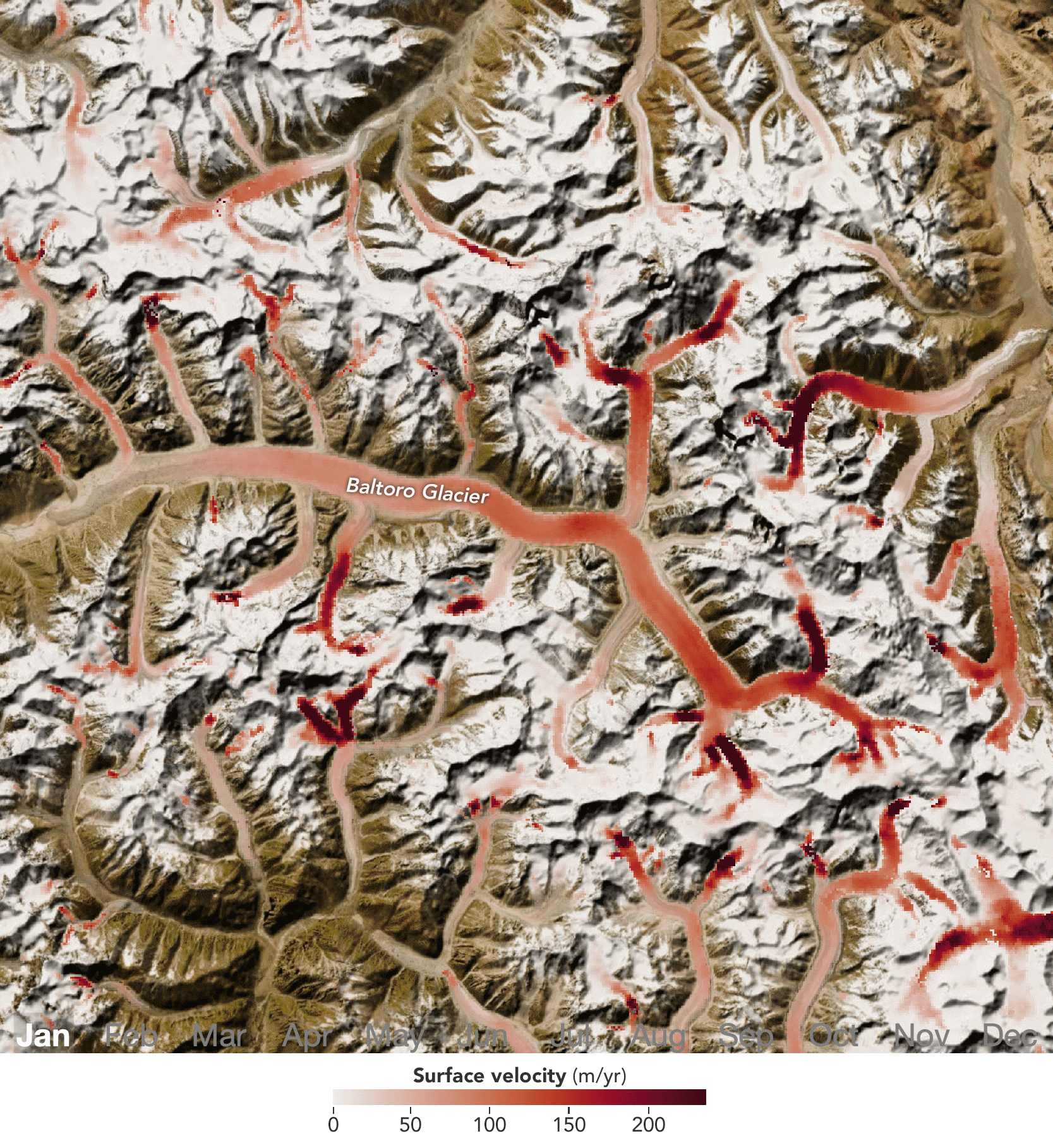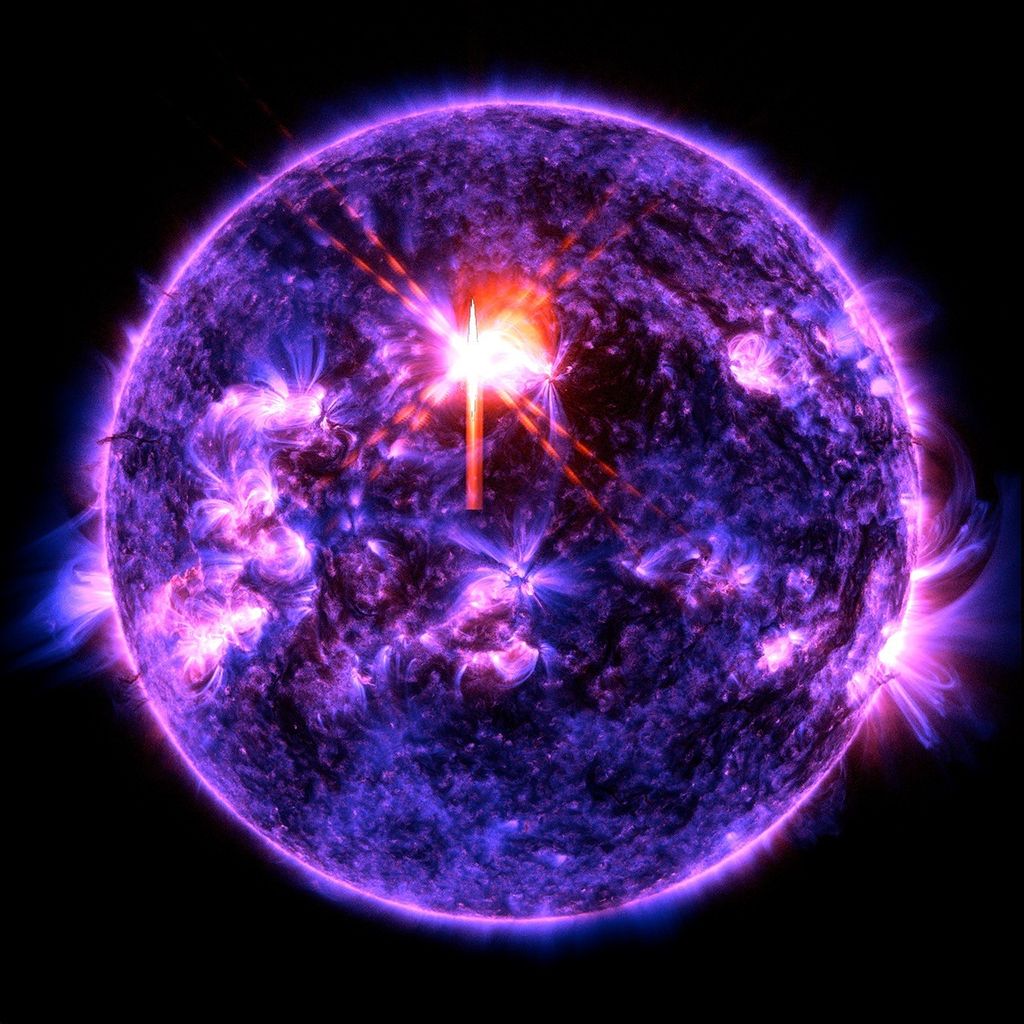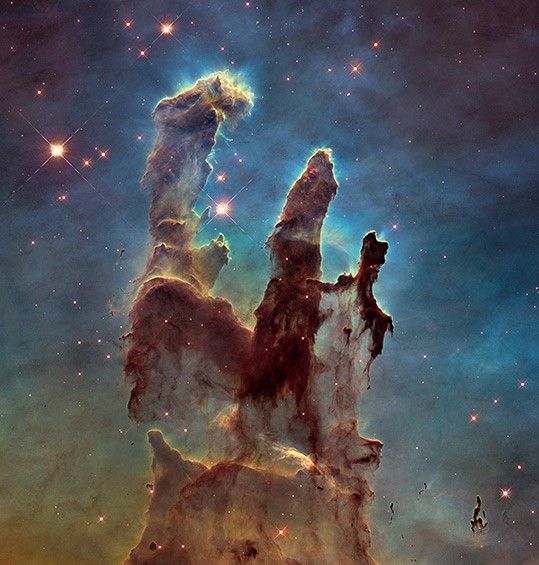1 min read
Mapping the dark matter in the core of galaxy cluster Abell 520

These composite images, taken by two different teams using the Hubble Space Telescope, show different results concerning the amount of dark matter in the core of the merging galaxy cluster Abell 520.
Dark matter is an invisible form of matter that astronomers deduce is the underlying gravitational "glue" that holds galaxies together.
Top Image: Observations of the cluster, taken by D. Clowe with the Advanced Camera for Surveys, map the amount of dark matter in Abell 520. The map reveals an amount of dark matter astronomers expect based on the number of galaxies in the core. The dark-matter densities are marked in blue, and the dotted circle marks the dark-matter core. The map is superimposed onto visible-light images of the cluster.
Bottom Image: A second team, led by James Jee of the University of California, Davis, used the Wide Field Planetary Camera 2 and found an unusual overabundance of dark matter in the cluster's core, denoted by the bright blue color at image center. The observation was surprising because astronomers expect that dark matter and galaxies should be anchored together, even during a collision between galaxy clusters.
This discrepancy between the two results requires further observation and analysis, say researchers.
The two dark-matter maps were made by detecting how light from distant objects is distorted by the galaxy clusters, an effect called gravitational lensing.
Abell 520 is located 2.4 billion light-years away.
- Object NameObject NameA name or catalog number that astronomers use to identify an astronomical object.Abell 520
- Release DateNovember 30, 2012
- Science Release‘Dark Core’ May Not Be So Dark After All
- Credit
Share
Details
Claire Andreoli
NASA’s Goddard Space Flight Center
Greenbelt, Maryland
claire.andreoli@nasa.gov































